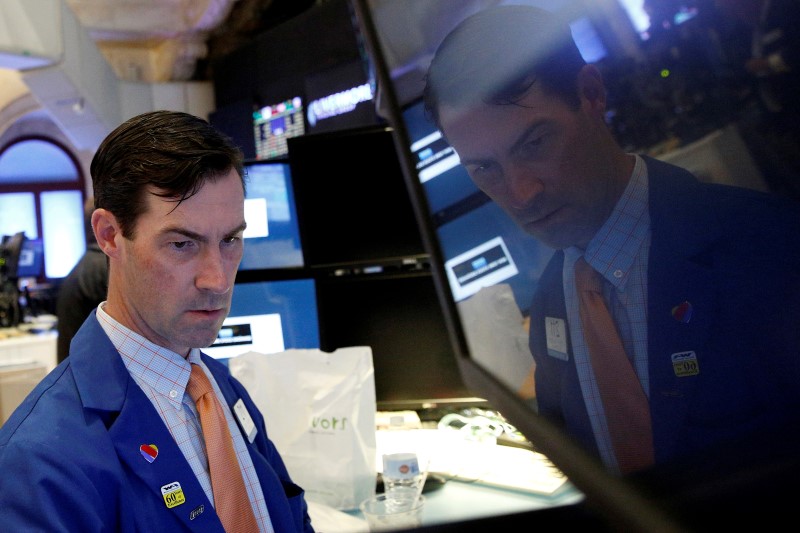By Saqib Iqbal Ahmed
NEW YORK (Reuters) - Global equity prices lost steam on Tuesday after a recent rally as investors worried about disappointing earnings reports and signs that Britain's decision to leave the EU could hurt other economies, while the U.S. dollar climbed to a four-month high.
Prices for U.S. Treasury debt, considered a safe-haven asset, rose as risk appetite waned following weakness in stocks. Oil prices slipped, pressured by the stronger U.S. dollar.
The dollar index (DXY), which tracks the greenback against six major currencies, rose to its highest since March 10 to 97.148. The dollar rose on a combination of economic news from the United States and Europe, with the euro dipping to a three-week low against the dollar
Germany's ZEW economic sentiment indicator plunged to its lowest since late 2012 in its first reading since the June 23 Brexit vote. U.S. data, however, underpinned a theme of strength in the economy, with housing starts rising more than expected in June.
Also weighing on sentiment was the International Monetary Fund's cut to its global growth forecasts for the next two years due to uncertainty over Britain's looming exit from the European Union.
"Today's U.S. data was stronger and any time you get a sentiment number out of Germany that is worse than expected, that combination is going to give the dollar a little bit of a push against the euro," said Scott Wren, senior global equity strategist at Wells Fargo (NYSE:WFC) Investment Institute in St. Louis.
Investors, however, also were anxiously watching corporate results in the thick of the second-quarter earnings season, and a mixed bag of results dented investor confidence in stocks maintaining their recent momentum.
While the Dow industrials eked out a small increase to mark an eighth straight session of gains, the S&P 500 pulled back from record highs.
Netflix (O:NFLX) shares slumped 13 percent after weak earnings late on Monday. Goldman Sachs (N:GS) dropped 1.2 percent as its profit beat wasn't considered as impressive as those of its peers.
"There's enough uncertainty out there in a market that's done pretty well as of late to cause people to take some money off the table today," said Peter Tuz, president of Chase Investment Counsel in Charlottesville, Virginia.
The Dow Jones industrial average (DJI) closed up 25.96 points, or 0.14 percent, at 18,559.01, the S&P 500 (SPX) lost 3.11 points, or 0.14 percent, to end at 2,163.78 and the Nasdaq Composite (IXIC) dropped 19.41 points, or 0.38 percent, to finish at 5,036.37.
The MSCI world equity index (MIWD00000PUS), which tracks shares in 45 nations, was down 0.3 percent, only its second decline in nine sessions.
European shares touched a one-week low on Tuesday as weak earnings updates from Ericsson (ST:ERICb) and AkzoNobel (AS:AKZO) weighed on markets. Europe's broad FTSEurofirst 300 index (FTEU3) closed down 0.44 percent to 1,332.21.
Oil prices fell as much 1 percent for a second day in a row as the rallying dollar and a persistent global fuel glut offset forecasts for lower U.S. crude stockpiles.
Brent crude (LCOc1) settled down 30 cents, or 0.64 percent, at $46.66 a barrel. U.S. crude (CLc1) ended 59 cents, or 1.30 percent, lower at $44.65.
In bond markets, yields on U.S. 10-year notes and 30-year bonds fell after three days of gains, while those on the short end of the curve were mixed.
In late trading, benchmark U.S. 10-year Treasury notes

Gold cut some gains from earlier in the session, hurt by the stronger dollar, but was bolstered by weaker equities. Spot gold